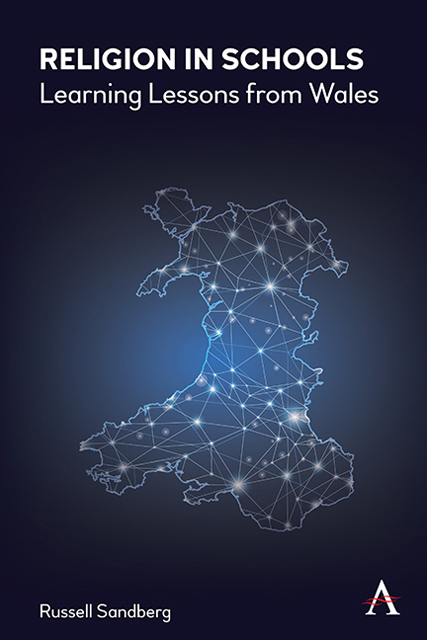5 - The Current Law
Published online by Cambridge University Press: 09 December 2022
Summary
The current domestic law governing religious observance in schools can now be found in the Education Act 1996 and the School Standards and Framework Act 1998. These provisions continue to be broadly the same as the settlement reached in 1944, as amended by the 1988 Act. The distinction between maintained schools that are established by the State (local authorities and their predecessors) and those established by voluntary bodies (largely churches and other religious communities) continues to be pivotal. However, there are now other forms of maintained schools (community schools, foundation schools, community-special schools and foundation-special schools) as well as schools that fall outside the maintained category, not only the longstanding independent schools but also notably the hybrid category of Academies and Free Schools, both of which are technically independent schools but which are funded directly by the government rather than being run by the local authority. The distinction between voluntary aided and voluntary controlled schools remains vital with the differences being control and financing. Community-and voluntary-controlled schools are run by the local authority, which employ the staff and set admission criteria. Foundation and voluntary-aided schools are run by their governing body.
All types of school that have been established by religious bodies may be designated as having some form of religious character. Attendance at or abstaining from attending a Sunday school or a place of worship cannot be required as a condition of attending a maintained school. Schools with a religious character can restrict admission on grounds of religion or belief. However, they cannot discriminate on any other ground, such as on grounds of sex or race or ethnicity. This has proved controversial since a watertight distinction cannot often be drawn between race and religion.
The basic distinction is between schools that have not been designated as having a religious character and those that have. The following will survey the current laws that apply to both in relation to religious education (RE) and worship.
Religious Education in Schools without a Religious Character
In maintained schools that have not been designated as having a religious character, the governing body and the head teacher must ensure that RE is given in accordance with the local agreed syllabus. However, Local Authorities should ‘have regard to the general principle that pupils are to be educated in accordance with the wishes of their parents, so far as that is, compatible with the provision of efficient instruction and training and the avoidance of unreasonable public expenditure’.
- Type
- Chapter
- Information
- Religion in SchoolsLearning Lessons from Wales, pp. 37 - 46Publisher: Anthem PressPrint publication year: 2022



